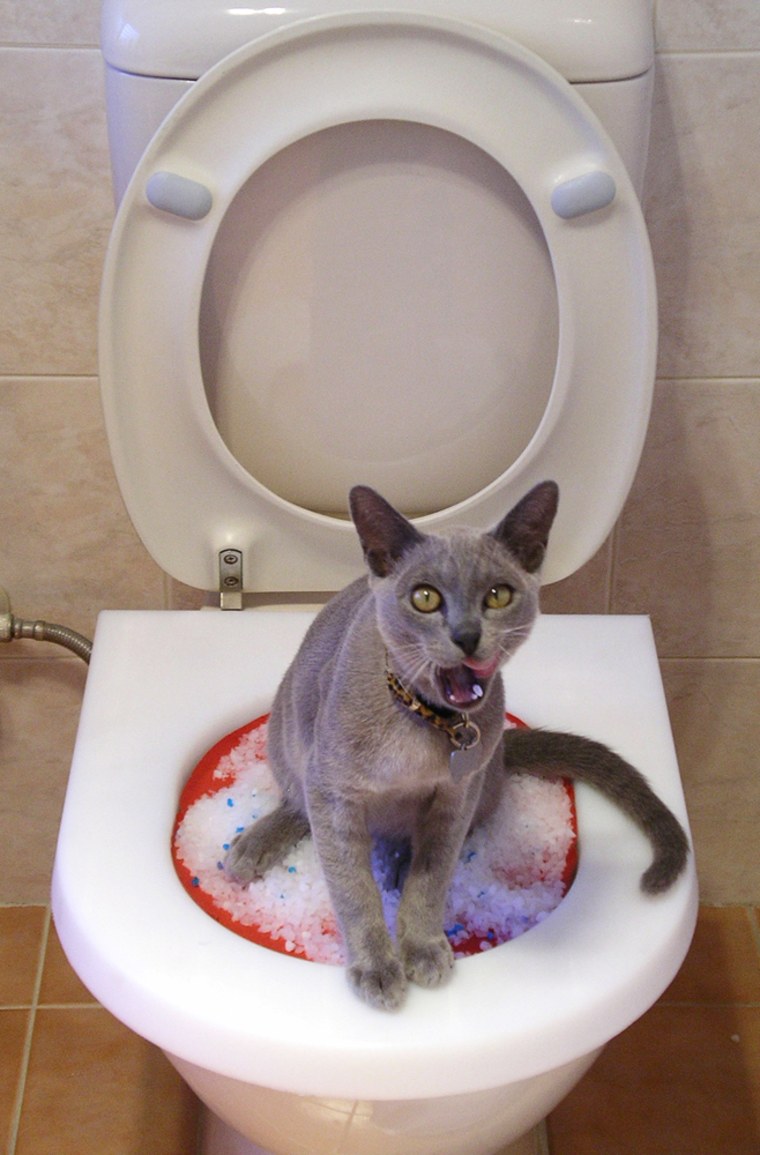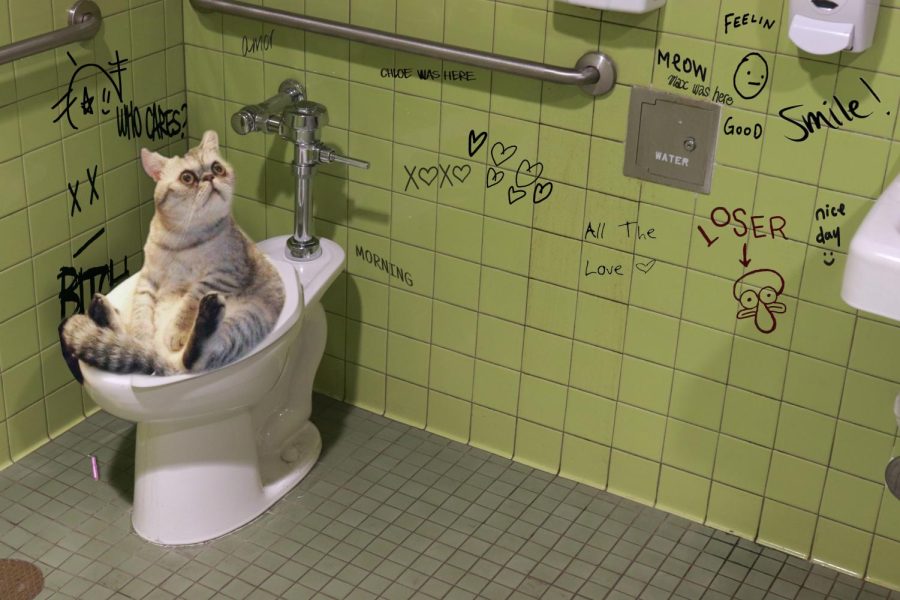An Outcomes of Flushing Animal Waste Down the Toilet
An Outcomes of Flushing Animal Waste Down the Toilet
Blog Article
We have come across the article about Can You Flush Dog and Cat Poo Down the Toilet? directly below on the web and decided it made sense to write about it with you on my blog.

When it concerns dealing with waste, specifically animal waste, many people typically consider the convenient choice of flushing it down the commode. However, this relatively very easy solution can have major repercussions for the setting and public health. In this short article, we'll check out why flushing pet waste down the commode is a negative concept and provide alternative methods for proper disposal.
Introduction
Proper waste disposal is vital for keeping ecological sustainability and public health. While it may appear harmless to flush animal waste down the commode, it can cause various problems, both for the setting and human wellness.
Threats of flushing pet waste
Environmental effect
Purging animal waste introduces harmful germs and virus into rivers, which can negatively impact water ecological communities. These pathogens can contaminate water resources and injury aquatic life, disrupting delicate environments.
Public health worries
Pet waste consists of damaging microorganisms such as E. coli and Salmonella, which can present severe health risks to human beings. Flushing animal waste down the commode can infect water products, leading to the spread of diseases and infections.
Alternatives to flushing
Instead of flushing pet waste down the bathroom, there are a number of alternate disposal approaches that are extra eco-friendly and hygienic.
Composting
Composting animal waste is an environment-friendly method to take care of it. By composting, raw material is broken down right into nutrient-rich soil, which click here can be used to feed yards and plants.
Garbage dump disposal
Taking care of pet waste in a garbage dump is another alternative. While not as environmentally friendly as composting, it is a safer option to flushing, as it avoids the contamination of water resources.
Animal garbage disposal systems
There are specific animal garbage disposal systems available that securely and hygienically deal with pet waste. These systems frequently utilize enzymes to break down waste and remove odors.
Steps to proper animal garbage disposal
To ensure proper disposal of animal waste, follow these steps:
Scooping and nabbing waste
Consistently scoop and bag pet waste making use of biodegradable bags. This avoids waste from infecting the setting.
Utilizing assigned waste bins
Dispose of bagged animal waste in designated waste bins, such as garden compost containers or garbage dump bins. Avoid flushing it down the toilet in all prices.
Cleansing can and animal areas regularly
Consistently clean litter boxes and pet dog areas to prevent the build-up of waste and germs. Usage pet-safe cleaning products to preserve hygiene.
Advantages of correct disposal techniques
Taking on proper disposal methods for animal waste supplies several benefits:
Minimized environmental pollution
Proper disposal techniques decrease the risk of environmental pollution, safeguarding rivers and ecological communities from contamination
Reduced risk of water contamination.
By staying clear of flushing animal waste down the toilet, the danger of water contamination is dramatically lowered, securing public health.
Improved sanitation and hygiene
Appropriate disposal methods promote far better hygiene and health, developing a much safer atmosphere for both people and animals.
Verdict
Finally, flushing pet waste down the bathroom is dangerous to the atmosphere and public health. By taking on alternate disposal methods and adhering to correct waste monitoring practices, we can lessen the negative impact of pet waste and add to a cleaner, healthier world.
What To Do With Dog Poo – The Do's And Don'ts Of Disposing Of Faeces
Dog poo bins
Some councils provide dedicated dog waste bins in popular dog-walking areas that can take dog poo that has been bagged but you can legally dispose of dog waste in any public litter bin, as long as it is securely bagged. This also applies to your wheelie bin at home.
Do not flush
Water companies do not recommend flushing dog faeces down the toilet because certain parasites can survive the water processing treatment and are potentially harmful to humans. You should also never consider flushing dog poo that has been bagged down the toilet as the bags will not break down and instead create severe blockages in the sewage system.
In the woods
The Forestry Commission promotes a ‘stick and flick’ method for dealing with waste in the woods. This means finding a stick and using it to flick any poo from off the path so that it is out of the way of other walkers. You could also bury it as long as it is not in an area where there might be livestock.
Livestock
Parasites found in dog poo can be transmitted to livestock if they inadvertently eat infected faeces that has been left on grazing land. This could result in the death of sheep or abortion in cattle so you should always make sure you pick up your dog’s waste in fields where livestock could be present.

Consistently clean litter boxes and pet dog areas to prevent the build-up of waste and germs. Usage pet-safe cleaning products to preserve hygiene.
Advantages of correct disposal techniques
Taking on proper disposal methods for animal waste supplies several benefits:
Minimized environmental pollution
Proper disposal techniques decrease the risk of environmental pollution, safeguarding rivers and ecological communities from contamination
Reduced risk of water contamination.
By staying clear of flushing animal waste down the toilet, the danger of water contamination is dramatically lowered, securing public health.
Improved sanitation and hygiene
Appropriate disposal methods promote far better hygiene and health, developing a much safer atmosphere for both people and animals.
Verdict
Finally, flushing pet waste down the bathroom is dangerous to the atmosphere and public health. By taking on alternate disposal methods and adhering to correct waste monitoring practices, we can lessen the negative impact of pet waste and add to a cleaner, healthier world.
What To Do With Dog Poo – The Do's And Don'ts Of Disposing Of Faeces
Dog poo bins
Some councils provide dedicated dog waste bins in popular dog-walking areas that can take dog poo that has been bagged but you can legally dispose of dog waste in any public litter bin, as long as it is securely bagged. This also applies to your wheelie bin at home.
Do not flush
Water companies do not recommend flushing dog faeces down the toilet because certain parasites can survive the water processing treatment and are potentially harmful to humans. You should also never consider flushing dog poo that has been bagged down the toilet as the bags will not break down and instead create severe blockages in the sewage system.
In the woods
The Forestry Commission promotes a ‘stick and flick’ method for dealing with waste in the woods. This means finding a stick and using it to flick any poo from off the path so that it is out of the way of other walkers. You could also bury it as long as it is not in an area where there might be livestock.
Livestock
Parasites found in dog poo can be transmitted to livestock if they inadvertently eat infected faeces that has been left on grazing land. This could result in the death of sheep or abortion in cattle so you should always make sure you pick up your dog’s waste in fields where livestock could be present.

As an avid person who reads about Don't Flush Your Pets Poo Down The Loo, Vet Warns, I figured sharing that information was smart. Are you aware of somebody who is interested by the topic? Please feel free to promote it. We value your readership.
Hire A Pro Report this page